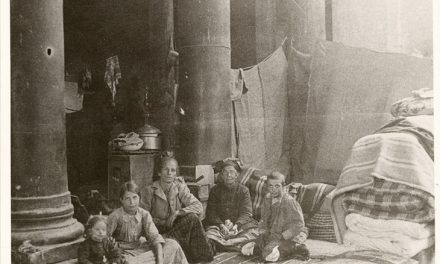Mikis Theodorakis, a name synonymous with Greek culture and political engagement, left behind an immense musical legacy, a significant part of which is his profound contribution to film scores. As we mark the 100th anniversary of his birth in 2025, we remember how the internationally acclaimed Greek composer left his indelible mark on cinema. Beyond his symphonies, oratorios, and popular songs, Theodorakis’s film music earned him international acclaim, making him one the most famous Greek composers of the 20th century. His cinematic melodies, often composed under challenging circumstances like imprisonment or exile, became iconic, gracing Oscar-winning films and earning him nominations and awards from prestigious organizations such as the Golden Globes, Grammys, and BAFTAs.
Theodorakis’s journey into film composition began in 1953 with the Greek-American director Greg Tallas’s “Barefoot Battalion“. His international breakthrough, however, came a few years later with Michael Powell’s 1959 film “Honeymoon” (Luna de Miel). The film featured his recurring musical theme, the “Honeymoon Song,” which later became widely known in Greece as “Αν θυμηθείς τ’ ονειρό μου” (If You Remember My Dream). Such was its popularity that the Beatles even covered it in 1964.
During a prolific period for Greek cinema, Theodorakis continued to make his mark. He composed for Alekos Alexandrakis’s “Συνοικία το Ονειρο” (A Neighbourhood Called ‘Τhe Dream’) in 1961, a landmark film for Greek cinema known for its melancholic atmosphere and the orchestral “Ο Χορός του Ρίκο“. The film’s standout song, “Βρέχει στη Φτωχογειτονιά” (It’s Raining in the Poor Neighborhood), with lyrics by Tasos Leivaditis, was first performed by Grigoris Bithikotsis in a classic scene and became widely covered.
Theodorakis also forged significant collaborations with renowned directors. He scored Jules Dassin’s “Phaedra” (1961/1962), starring Melina Mercouri and Anthony Perkins. For this film, he showcased his versatility by adopting a more jazz-oriented style, with Mercouri herself performing two notable songs: “Σε Πότισα Ροδόσταμο” and “Love Theme from Phaedra” (known as “Αστέρι μου Φεγγάρι μου“). His enduring partnership with Greek director Michael Cacoyannis began with “Electra” (1962), an adaptation of Euripides’ tragedy, for which Theodorakis received a music award at the Thessaloniki Film Festival. His score for “Electra” was innovative, using elementary musical instruments to create a ritualistic rhythm and incorporating natural sounds.
In 1962, French actor and director Raymond Rouleau filmed “Les Amants de Teruel,” with Mikis Theodorakis participating in the soundtrack. The film’s theme, actually the melody of his song “Ομορφη πόλη” (Beautiful City) would later acquire French lyrics and be sung by none other than Edith Piaf!
The zenith of his cinematic career arrived in 1964 with Michael Cacoyannis’s “Zorba the Greek“. The film, which earned three Oscars, featured Theodorakis’s complete soundtrack and etched his name into global consciousness. The iconic “Zorba’s Dance” (Sirtaki), performed by Anthony Quinn, remains one of the most powerful and recognizable images in cinema history, heard and danced worldwide even decades later. His work on “Zorba the Greek” earned him nominations for both a Golden Globe and a Grammy.
Theodorakis’s music was deeply intertwined with his political activism, a connection evident in his cinema work. While in exile in 1969, he managed to collaborate with Costa-Gavras on the legendary political thriller “Z“. Despite being in exile and unable to write music specifically for the film, he granted Gavras permission to use any of his existing pieces, which were then adapted by a French composer. Theodorakis’s rich, furious, and detailed palette of sounds perfectly complemented the film, which gained immense international recognition, winning two Oscars. For his powerful score, Theodorakis was awarded a BAFTA for Best Original Music in 1970.
His second collaboration with Costa-Gavras was on “State of Siege” (1972). For this film, Theodorakis incorporated the Chilean group Los Calchakis, expressing his support for the Latin American struggle against imperialism. Although a larger work was intended, Gavras ultimately chose to cut much of the score from the film, as he wanted to avoid an overly epic tone. Later editions released the full intended soundtrack, which blended traditional Andean sounds with the vocals of Los Calchakis.
In 1973, Theodorakis cemented his Hollywood presence with Sidney Lumet’s “Serpico”, starring Al Pacino. Lumet specifically sought out Theodorakis, who had recently left Greece, valuing his status as a “stalwart leftist” within the European artistic elite. While on a major U.S. tour, Theodorakis provided Lumet with just 14 minutes of music that scored the film. His work on “Serpico” earned him another Grammy nomination and a BAFTA nomination. His name appeared prominently in the film’s opening credits, second only to Al Pacino’s and before Lumet’s, a testament to his global recognition. The score uniquely blended traditional bouzouki sounds with more modern jazz influences.
Theodorakis continued his prolific work, collaborating with Cacoyannis again on “The Trojan Women” (1971) and “Iphigenia” (1977), and with Dassin on “The Rehearsal” (1974), a film about the Polytechnic uprising. In 1980, he composed the music for Nikos Tzimas’s classic political film, “The Man with the Carnation,” depicting the final days of Nikos Beloyannis.
Mikis Theodorakis’s filmography is a testament to his unparalleled talent, featuring scores that are undeniably national and political in character, yet capable of transcending borders. His music for cinema, often penned under the most adverse conditions, traveled the globe, graced classic films from Europe to Hollywood, garnered awards, and remains as emblematic and powerful today as when it was first created.
Honors and Awards Bestowed on Mikis Theodorakis for His Film Scores
1962: Awarded at the Thessaloniki Festival for his music in Michael Cacoyannis’s film Electra.
1965: Wins the Golden Globe from the Hollywood Foreign Press Association for his music in Zorba the Greek.
BAFTA Awards (the British Academy Film Awards, the UK equivalent of the Oscars):
- 1970: Wins the BAFTA for Best Music for Z.
- 1974: Wins the BAFTA for Best Music for State of Siege.
- 1975: Wins the BAFTA for Best Music for Serpico.
Grammy Awards, presented annually in the U.S. by the National Academy of Recording Arts and Sciences to honor outstanding achievements in the music industry:
- 1965: Wins the Grammy for his music in Zorba the Greek.
- 1974: Wins the Grammy for his music in Serpico.
- Awarded the “Erich Wolfgang Korngold” prize for his overall contribution to film music.
2002: Honored with the Erich Wolfgang Korngold award at the International Biennale for Film Music in Bonn, Germany
2007: The World Soundtrack Academy honored Theodorakis with a Lifetime Achievement Award for his entire body of work in film music, in a special ceremony (October 20) at the Ghent International Film Festival in Belgium.
I.L.
Read also from Greek News Agenda:
TAGS: ARTS | FILM | GREEK FILMS | MUSIC














